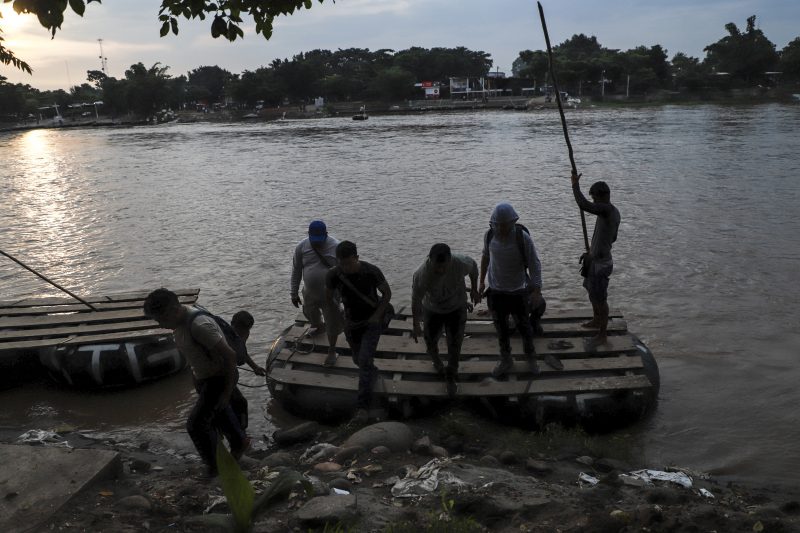US says CentrAm aid depends on ‘actions’ to curb migration
Central American migrants use a makeshift raft to illegally cross the Suchiate river from Tecun Uman, in Guatemala, to Ciudad Hidalgo, Mexico — the US is trying to stem the flow of migrants towards the US border (QUETZALLI BLANCO)
Washington (AFP) – The United States said Monday it would not offer any more aid to El Salvador, Guatemala and Honduras unless they take “concrete actions” to deter undocumented migrants from heading for the US.
In March, the administration of President Donald Trump had suspended aid to the so-called Northern Triangle countries, after the Republican leader accused them of doing nothing on the migrants issue.
On Monday, the government confirmed it had new rules.
“We completed the review” of aid programs to the countries, State Department spokeswoman Morgan Ortagus said.
Some priority programs aimed at curbing illegal migration and funded for $432 million in fiscal 2018 will continue.
But for fiscal 2019, $370 million initially planned will be allocated to other foreign policy priorities, the State Department said.
And all future aid is now conditional.
“We will not provide new funds for programs in those countries until we are satisfied the Northern Triangle governments are taking concrete actions to reduce the number of illegal migrants coming to the US border,” Ortagus said.
Tens of thousands of Central Americans fleeing gang violence and poverty have traveled through Mexico in recent years in a bid to try to enter the United States.
Stopping the migrant caravans has become a policy priority for Trump.
In December, the United States and Mexico had agreed to invest a significant amount in the “Northern Triangle” and southern Mexico in the hopes of stemming the migrant tide.
Democratic Senator Bob Menendez criticized the government’s decision, calling it an “irresponsible” move that would “limit our nation’s ability to actually help address the challenges forcing people to flee to the US.”
Disclaimer: Validity of the above story is for 7 Days from original date of publishing. Source: AFP.


